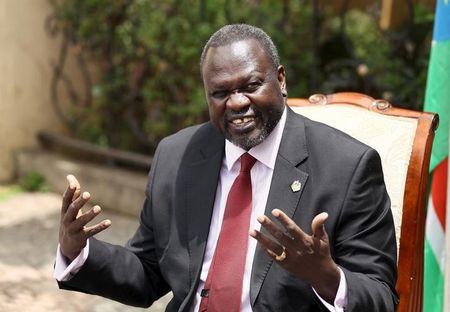Advertisement
South Sudan's rebels ratify fragile peace deal: spokesman
JUBA (Reuters) - South Sudan's rebels have ratified a peace deal signed by President Salva Kiir and their leader Riek Machar last month, in another step towards ending a 20-month civil war, the rebel spokesman said.
South Sudan's parliament unanimously ratified the deal on Thursday, though both the government and rebels have voiced lack of faith in the opposing side to implement the peace deal and acussed each other of ceasefire violations.
The world's youngest nation descended into civil war in December 2013, soon after its independence from Sudan. Clashes erupted after a political row between Kiir and his then-deputy Machar spiraled into conflict, reopening ethnic faultlines.
Machar signed a peace deal proposed by regional leaders on Aug. 17 and Kiir ten days later, under mounting pressure from neighbouring countries and threats of sanctions from Western powers and the United Nations.
Rebel spokesman James Gatdet Dak said the rebels' National Liberation Council endorsed the agreement in a meeting held in the town of Pagak, a rebel stronghold in the oil-reach northern Upper Nile state close to the border with Ethiopia.
In backing the deal, the council nominated Machar as their pick for first vice president, the highest-ranking post allocated to the rebels under the peace deal's power-sharing terms.
Despite the deal, sporadic bouts of fighting have continued in some parts of the country, prompting the United Nations Security Council to warn both sides that it could impose sanctions if the deal collapses.
More than 10,000 people have been killed since the conflict erupted in December 2013 between forces loyal to Machar, an ethnic Nuer, and to Kiir, from the dominant Dinka group.
Humanitarian agencies say many of South Sudan's 11 million people have been driven to the brink of starvation and two million people have fled their homes, many to neighboring states.



















Add new comment